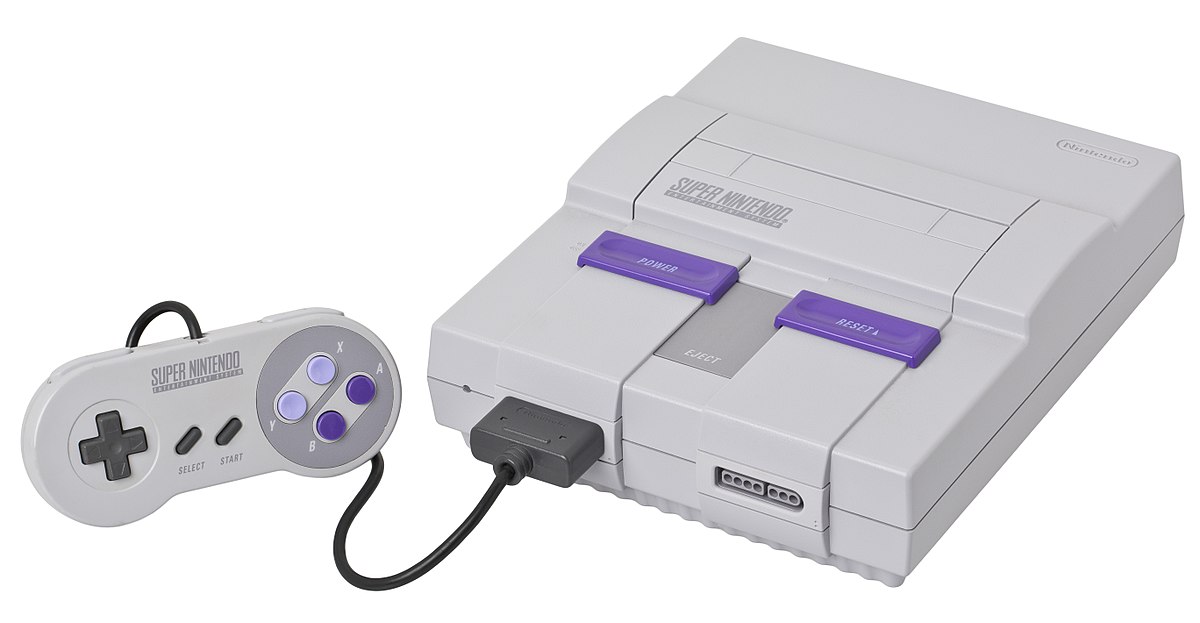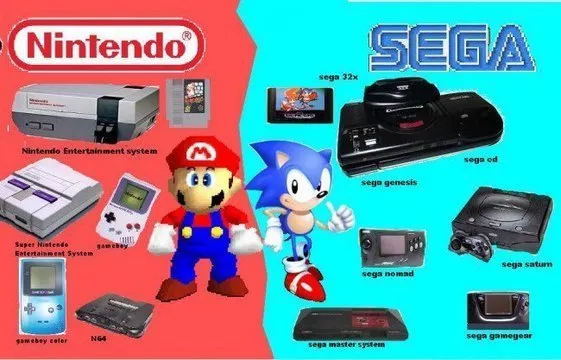
The Super Nintendo Entertainment System
Is Nintendo's second programmable home console, following the Nintendo Entertainment System (NES). The console introduced advanced graphics and sound capabilities compared with other systems at the time. The development of a variety of enhancement chips integrated in game cartridges helped to keep it competitive in the marketplace. The SNES was a global success, becoming the best-selling console of the 16-bit era despite its relatively late start and the intense competition it faced in North America and Europe from Sega's Genesis console. The SNES remained popular well into the 32-bit era having sold 49.1 million worldwide by the time it was discontinued in 2003. (Comparative to the NES's 61.9 million). It continues to be popular among collectors and retro gamers, some of whom still make homebrew ROM images, in addition to its popularity in Nintendo's emulated rereleases, such as in Virtual Console environment.
 In the early 90's Sega and Nintendo were competing over who makes the best console. Even though Sega lost the console wars they are still around as a third party game company.
In the early 90's Sega and Nintendo were competing over who makes the best console. Even though Sega lost the console wars they are still around as a third party game company.
Console Wars
The rivalry between Nintendo and Sega resulted in what has been described as one of the most notable console wars in video game history, in which Sega positioned the Genesis as the "cool" console, with games aimed at older audiences, and advertisements that occasionally attacked the competition. Nintendo however, scored an early public relations advantage by securing the first console conversion of Capcom's arcade classic Street Fighter II for SNES, which took over a year to make the transition to the Genesis. Despite the Genesis's head start, much larger library of games, and lower price point, the Genesis only represented an estimated 60% of the American 16-bit console market in June 1992, and neither console could maintain a definitive lead for several years. Donkey Kong Country is said to have helped establish the SNES's market prominence in the latter years of the 16-bit generation, and for a time, maintain against the PlayStation and Saturn. According to Nintendo, the company had sold more than 20 million SNES units in the U.S. According to a 2014 Wedbush Securities report based on NPD sales data, the SNES ultimately outsold the Genesis in the U.S. market.